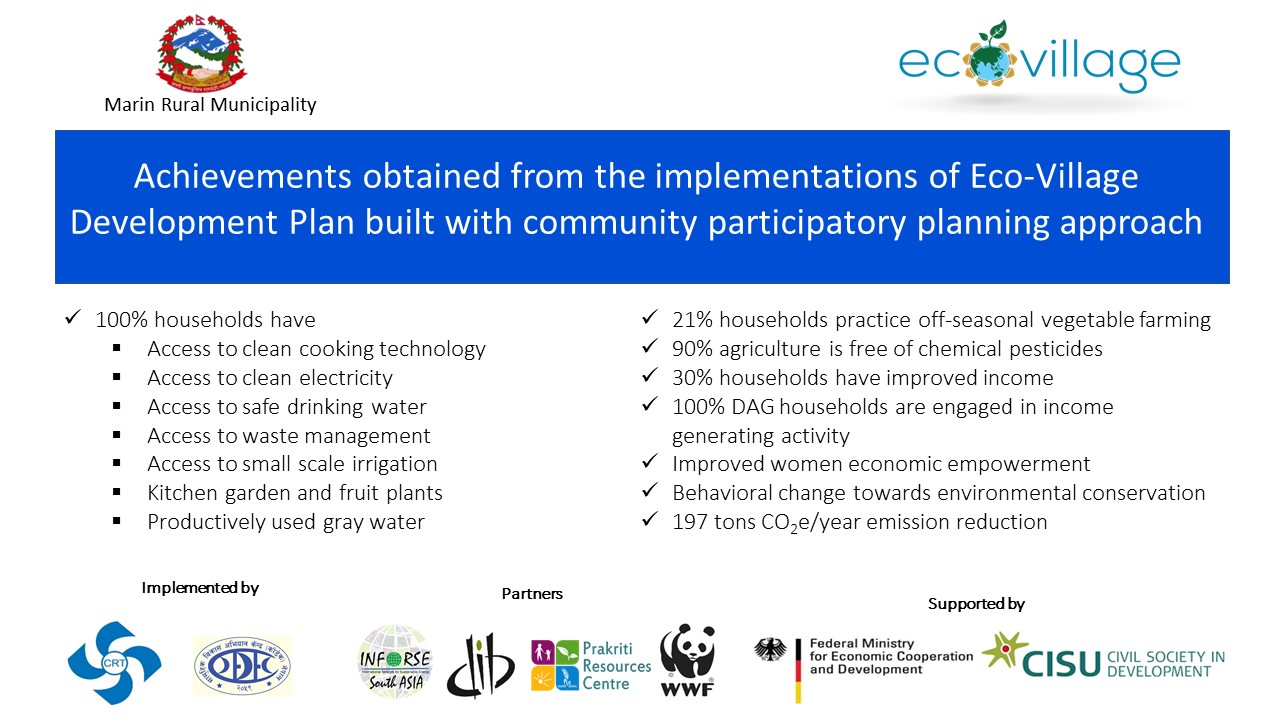The EVD provides a basket of low-cost climate smart solutions such as household biogas plants, improved cookstoves, solar PV, solar thermal, solar drying units, improved water mills (milling service plus hydro-electric power), and stand-alone systems like Pico /micro-hydro power for rural electrification. It also includes adaptation measures such as climate-smart farming (poly-tunnel farming, rainwater harvesting, gray water reclamation, bio-fertilizer and bio pesticides) and water-lifting technologies like hydraulic ram pumps, portable solar pumps, and solar water lifting for drinking and irrigation. The beneficiaries choose among these solutions based on their needs.
Besides introducing a climate-friendly technology; EVD concept include the maintenance, training, and support for sustainability as well as other frameworks such as sensitizing local schools on climate science and eco-village, financial linkage to improve access to climate-smart solutions, developing entrepreneurs while facilitating market linkage and agency-based empowerment enabling the women members of the communities to have their voice in selecting appropriate climate-smart solutions for their livelihood. The project also advocates local government to include the eco-village agenda in their annual plan and budget.
EVD concept is in sync with national development and climate plans, allowing synergy between the development objective of poverty reduction and the climate objectives of reducing emissions and developing climate resilience at the village level.
In the present phase, CRT/N is implementing the EVD concept in Bhalumara village, Marin Rural Municipality-3 of Sindhuli district in the lower plain area of Nepal by CRT (July 2020 to October 2023). The major problems identified were lack of water for drinking and irrigation, infertile soil, high wood consumption and indoor air pollution with inefficient cookstoves, poverty, and increasing migration of younger men for sustaining family needs.

